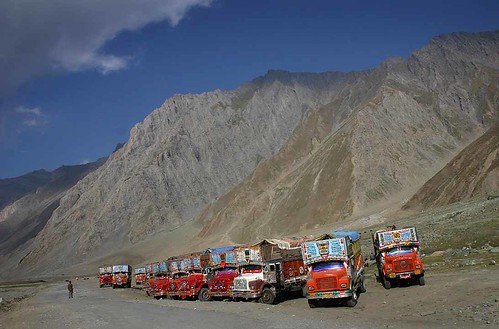After two days of research, reading downloaded web sites and articles on biomass, biogas, and gasifiers of all sorts (many of which are in India - ie the one already on this site), I have come to really miss that internet access so easily taken for granted. How did people used to research if they weren't constantly in a library - it's hard to have to wait for the answers to your questions - and without wikipedia? I could make a killing if I just sold wikipedia on DVD to foreigners so that they wouldn't have to wait for the articles to load...
Avani has a practice of using the invasive pine tree's needles to produce gas, removing a ground cover that causes forest fire and rain water runoff problems. My current engineering volunteer work involves attempting to design a new pine needle cutting device and contemplating my grand idea to fill the locally popular propane tanks (hauled at least 500 km to get here) with our locally produced pine needle gas. My conclusions, however, have disheartened my effort with a final figure of 150 lbs of pine needles to fill one propane tank, worth roughly $10 on the local market (that's like 4 big bags full, more than most black sheep have).
That's a wrap for the morning, and now I'm off to lunch - probably rice and lentils in the kitchen, which most people eat with their hands off our metal trays - then waiting til after chai to fix the shifters on my bike, study hindi, and read a bit on this warm sunny afternoon. Allergies have receeded, after I had to spend one night on the floor of my office because there is less pollen at a 50 meter-higher altitude. Yesterday, I looked up and said there was a rock in my rice, after finding the third one, and was asked "a big one?" to which I responded "no, a little one." And that was that. A day later - after one day of failed internet and a morning of stomach ailments, I return to explain the question I'm sure you are asking: What is Avani?
Avani is a Non-Governmental Organization that started in the Barefoot College (teaching people skills for adapting technology to suit their needs out in Rajasthan, NW India), when the founders decided that in order to have a more lasting impact, they should set up shop in the Himalayas and work directly with the people there - now they install and fix solar panels, microfinance local entrepreneurs, and oversee the production of textiles (clothing, mats, etc) which take advantage of the local spinning tradition. While spread out in the counties of Pithoragarh and Bageshawar to something like fifty villages, there are five centers, and I am at the biggest, with forty people residing here. There are a few families around us and in the complex, but most people eat in the cafeteria (our tea is made with on-site buffalo milk, some produce is from the fields and greenhouse, and our metal trays dry out in the sun after we wash them ourselves). They sleep in the dorms and work on fixing solar panels, weaving, or in the office, run entirely off the solar array installed here, drinking filtered rain water, collected and stored in underground cement pits on site. Actually, I think I will learn more than I will contribute, but since I'm paying my own way here I hope no one complains. I am cruising through Teach Yourself Hindi so that I can communicate more readily with the less-English-speakers, though they occasionally converse in Kumaoni, a Tibetan-Hindi conglomerate that over 3 million people speak up in these mountains. Any hope I have of staying up to date on the news also relies on my Hindi as English publications don't make it this far from the large cities, but there is hope - I heard that we are on the list for broadband; who knows how long that could take. I'm relying on 2 kb/s from my volunteer office at this point.
Thus, I spend my morning working on my tiny laptop, reading articles on gasifiers and biomass that I've downloaded and developing my scheme for biogas propane tanks (new development - 150 lbs of pine needles can be bought for roughly $3, putting my scheme in the range of "somewhat reasonable"). I also hike up and away a bit and jot down ideas for machines or just general transcendentalist thoughts (still picking up my tattered copy of Whitman from time to time) surrounded by the rolling hills and the far off snow capped mountains - roughly 100 km from Nepal and around that to Nanda Devi (7800 m?), one of the tallest mountains in the world.
And it takes three days of patience to publish this.
Saturday, October 4, 2008
Subscribe to:
Post Comments (Atom)


2 comments:
You da man Jono. Have you considered importing me to Avani? Let me tell you, I can produce gas on the double, on the daily.
Dude...your life trips me out. All i did today was not have class...keep trucking dude.
Post a Comment